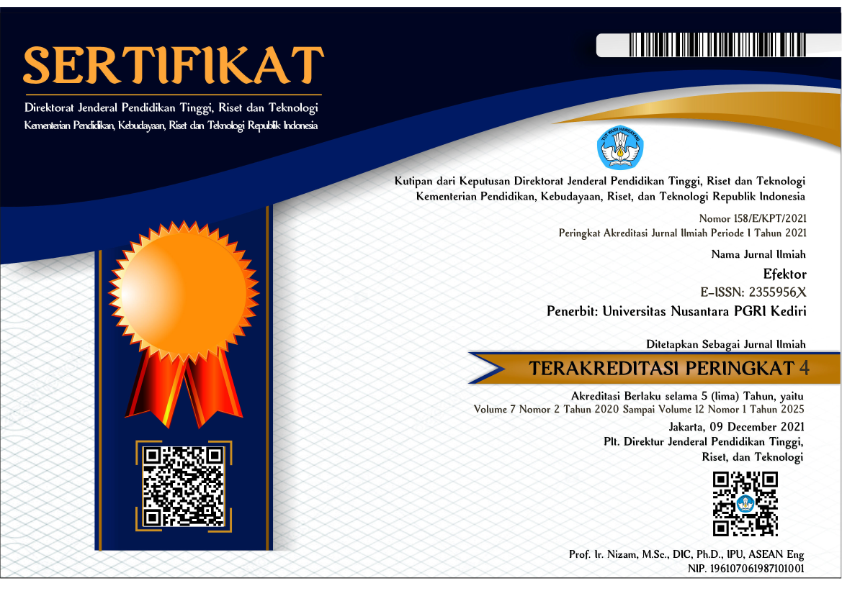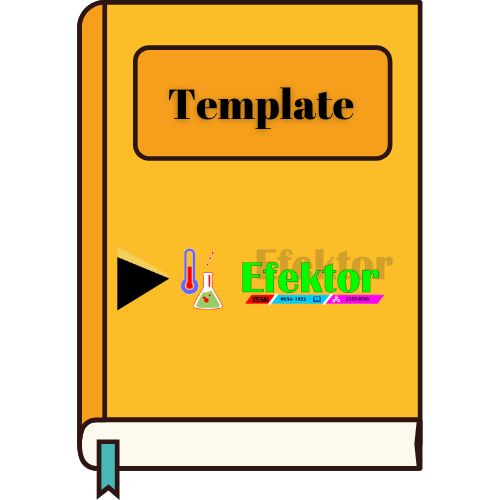IMPROVING THE STUDENT’S VOCABULARY MASTERY BY USING CONSTRUCTIVISM PRINCIPLE IN THE SECOND YEAR STUDENTS OF SMAN 1 KAUMAN
DOI:
https://doi.org/10.29407/e.v4i1.741Abstract
Vocabulary plays important roles in mastering English. Vocabulary refers to all words in the whole language used in a particular variety. In this case, the students have some problems. The problems about difficult in mastering vocabulary, that the students are lack of vocabularies, the students often get difficult in expressing their ideas, the students have low motivation. The students felt unsatisfactory in their results. It’s caused the students are lack of practice and lack vocabulary to memorize it. In this case the good technique of vocabulary teaching is needed to make the students enthusiastic in learning vocabulary. The objective of vocabulary teaching in English as a foreign language cannot be separated from the objective of teaching English in general. In others words, the objective of teaching English implies the objective of teaching vocabulary.To overcome the problemin this study the researcher designs the media in the form of picture in teaching and learning activities. Finally, the pictures should be large enough and be easily seen by all students.There area number of ways to improve the students’ vocabulary mastery. Because of the condition the researcher holds the research related to the vocabulary’s mastery . The study is aimed at two main purposes as follows: (1) to improve the students’ vocabulary mastery through Constructivism principle(2) to improve the students’ interest in learning vocabulary through Constructivism principle.From the result of the study that Constructivism principle can improve the students’ vocabulary mastery and constructivism principle can improve the students’ interest in learning vocabulary
References
Downloads
Published
Issue
Section
License
Authors who publish with this journal agree to the following terms:
- Copyright on any article is retained by the author(s).
- The author grants the journal, the right of first publication with the work simultaneously licensed under a Creative Commons Attribution License that allows others to share the work with an acknowledgment of the work’s authorship and initial publication in this journal.
- Authors are able to enter into separate, additional contractual arrangements for the non-exclusive distribution of the journal’s published version of the work (e.g., post it to an institutional repository or publish it in a book), with an acknowledgment of its initial publication in this journal.
- Authors are permitted and encouraged to post their work online (e.g., in institutional repositories or on their website) prior to and during the submission process, as it can lead to productive exchanges, as well as earlier and greater citation of published work.
- The article and any associated published material is distributed under the Creative Commons Attribution-ShareAlike 4.0 International License













